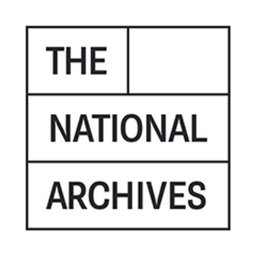Poor Law Projects Officer
Job Description
As the living, growing home of our national story, The National Archives is already a special place to work. We're an institution nearly 200 years old with a collection spanning 1,000 years of history. But it's where we go next that makes things really interesting .
In our strategic vision: Archives for Everyone, we set ourselves the challenge of becoming the 21st Century national archive - a different kind of cultural and heritage institution: Inclusive, Entrepreneurial, Disruptive. We won't become this overnight. It will take time, focus, effort and daring.
That's where you come in. Because we can't do this without you.
Job Overview
Salary: 32,721 per annum, pro rata
Contract type: Fixed Term Appointment until 31 January 2029 with possible extension
Band: E / Higher Executive Officer
Closing date: Wednesday 10th September 2025 at midnight
This post will be responsible for supporting the delivery of two externally funded projects funded by the British Academy, the Arts and Humanities Research Council and the University of Nottingham Trent' s Impact Fund.
The Testimony of the Victorian Poor is a collaborative research project led by The National Archives in collaboration with Nottingham Trent University and funded by The British Academy (award reference: ARP24/250692). The project aims to identify, list and transcribe thousands of letters written by the Victorian English and Welsh paupers and the wider poor, found within the Poor Law Union Correspondence volumes at The National Archives. The project will then seek to geo-reference and subject-code each letter and upload each transcription to the open research database Voices of the Victorian Poor. The project is a follow-on from two highly successful earlier funded projects; these additional letters will mean that some c.18,500 letters will be accessible globally for free in perpetuity.
A Century of Struggle: Pauperism and the New Poor Law in Wales 1834 - 1930 is a collaborative research project led by The National Archives in collaboration with Aberystwyth University and Nottingham Trent University. The project aims to provide, for the first time, a detailed picture of the totality of the New Poor Law in Wales. It is funded by the Arts and Humanities Research Council (AHRC) (award reference: UKRI1432).
This postholder will be responsible for overseeing the identification, listing and transcription of historical data, as well as the management of a sizable volunteer group (c. 35-50 people) all of whom will be working with 19th century poor law archives. The volunteer group will be working both on and off-site. The post holder will also be responsible for the delivery of communication outputs (including blogs, social media, and recorded talks to the public) to publicise the work of the project, as well as liaising with project partners, attending project meetings (reporting on the archival data-set work), and assisting the wider project team as required. The post holder will work closely with the Principal Records Specialist (Collaborative Projects) who will be leading each project.
This role will be part-time (0.3 FTE/1.5 days a week) until 31 January 2029, with the possibility of extension.
A combination of onsite and home working is available and applicants should be able to regularly travel to our Kew site for a minimum of 60% of their work time.
Application Process:
Interview: Interviews will be held on-site ideally week commencing 22nd September. Candidates invited to interview will be asked to prepare for a topical discussion as part of the interview assessment.
Personal Statement: We ask all applicants to submit work history details and a personal statement, not exceeding 1200 words.
Selection for interview will be based on the 'essential' requirements in the job description so please ensure that your statement demonstrates in detail how you meet these requirements.
Artificial Intelligence can be a useful tool to support your application, however, all examples and statements provided must be truthful, factually accurate and taken directly from your own experience. Where plagiarism has been identified (presenting the ideas and experiences of others, or generated by artificial intelligence, as your own) applications may be withdrawn and internal candidates may be subject to disciplinary action. Please visit the Civil Service Careers website where you can find further information on the use of AI in the application guidance section.
Sponsorship:
We are unable to offer sponsorship for this role.
Role and Responsibilities
To develop and lead the onsite and online listing and access to spreadsheets and transcribed parts of our collections (MH 12) onsite as requested by the project lead, Principal Records Specialist (Collaborative Projects). To develop specialist knowledge of The National Archives' poor law collections c. 1834 to 1930 linking materials from MH 12 to "sister" series such as MH15, MH32 and MH25. To proactively co-manage the volunteer members of The Voices of the Victorian English and Welsh Poor Research Group - managing them (motivating, advising and checking their work) during their time with the project. To lead on the capture, upload and transfer of images for transcription by volunteers via our on-line accounts for the sharing of images and online guidance for transcription. To engage with the academic and research sectors (attending the project team meetings) and to respond to requests for ad-hoc research by the same. To proactively promote the value and importance of records and archival skills to academics and volunteers who are part of the research team. To improve and share knowledge of the work of both projects through the creation and delivery of blogs, recorded talks, website content and social media
Working Conditions
Normal archival reading room environment Display Screen Equipment user Moving items up to 10kg in weight May come into contact with distressing material
Person Specification
Essential:
A demonstratable keen interest and/or academic experience in a relevant specialist field; Demonstrable knowledge of the relevant poor law and related archival collections at The National Archives with requisite 19th century palaeography and language skills; Experience of communicating research through a variety of public engagement activities and communications outputs such as blogs, social media, exhibitions, recorded public talks, workshops and educational activities; Excellent interpersonal, communication and negotiation skills, and therefore able to interact well and build effective relationships with a range of internal and external stakeholders; Ability to handle a varied and demanding workload, and the ability to work both independently and within a team. Experience of working with and managing volunteers.
The Civil Service is committed to attract, retain and invest in talent wherever it is
found. To learn more please see the Civil Service People Plan and the Civil Service
D&I Strategy .
Benefits
Generous benefits package, including pension, sports and social club facilities, onsite gym, discounted rates at our on-site cafe and opportunities for training and development. Annual leave entitlement of 22 days per calendar year (rising to 25 after the first year, and incrementally to 30 days after six years) and 10 days public and privilege holidays per annum.
Any move to The National Archives from another employer will mean you can no longer access childcare vouchers. This includes moves between government departments. You may however be eligible for other government schemes, including Tax-Free Childcare. Determine your eligibility at https://www.childcarechoices.gov.uk/ ( opens in new window)
Reasonable adjustments
If a person with disabilities is put at a substantial disadvantage compared to a non-disabled person, we have a duty to make reasonable changes to our processes.
If you need a change to be made so that you can make your application, you should:
Contact The National Archives via careers@nationalarchives.gov.uk as soon as possible before the closing date to discuss your needs Complete the 'Reasonable Adjustments' section of your application form to tell us what changes or help you might need further on in the recruitment process. For instance, you may need wheelchair access at interview, or if you're deaf, a Language Service Professional
Feedback will only be provided if you attend an interview or assessment.
Security
Successful candidates must pass a disclosure and barring security check.
People working with government assets must complete basic personnel security standard checks (opens in new window)
Nationality requirements
This job is broadly open to the following groups:
UK nationals nationals of the Republic of Ireland nationals of Commonwealth countries who have the right to work in the UK nationals of the EU, Switzerland, Norway, Iceland or Liechtenstein and family members of those nationalities with settled or pre-settled status under the European Union Settlement Scheme (EUSS) (opens in a new window) nationals of the EU, Switzerland, Norway, Iceland or Liechtenstein and family members of those nationalities who have made a valid application for settled or pre-settled status under the European Union Settlement Scheme (EUSS) individuals with limited leave to remain or indefinite leave to remain who were eligible to apply for EUSS on or before 31 December 2020 Turkish nationals, and certain family members of Turkish nationals, who have accrued the right to work in the Civil Service
Further information on nationality requirements (opens in new window)
Working for the Civil Service
The Civil Service Code (opens in new window) sets out the standards of behaviour expected of civil servants.
We recruit by merit on the basis of fair and open competition, as outlined in the Civil Service Commission's recruitment principles . (opens in new window)
The Civil Service embraces diversity and promotes equal opportunities. As such, we run a Disability Confident Scheme (DCS) for candidates with disabilities who meet the minimum selection criteria.
The Civil Service also offers a Redeployment Interview Scheme to civil servants who are at risk of redundancy, and who meet the minimum requirements for the advertised vacancy.
This vacancy is part of the Great Place to Work for Veterans initiative . (opens in new window)
Contact point for applicants:
Name: The National Archives Recruitment Team Email: careers@nationalarchives.gov.uk
Further information
If you feel your application has not been treated in accordance with the Recruitment Principles and you wish to make a complaint, in the first instance, you should contact The National Archives via email: careers@nationalarchives.gov.uk If you are not satisfied with the response you receive from the Department, you can contact the Civil Service Commission at https://civilservicecommission.independent.gov.uk/recruitment/recruitment-complaints/ (opens in new window)
MNCJobs.co.uk will not be responsible for any payment made to a third-party. All Terms of Use are applicable.
Job Detail
-
Job IdJD3632316
-
IndustryNot mentioned
-
Total Positions1
-
Job Type:Part Time
-
Salary:Not mentioned
-
Employment StatusPart Time
-
Job LocationKew, ENG, GB, United Kingdom
-
EducationNot mentioned




